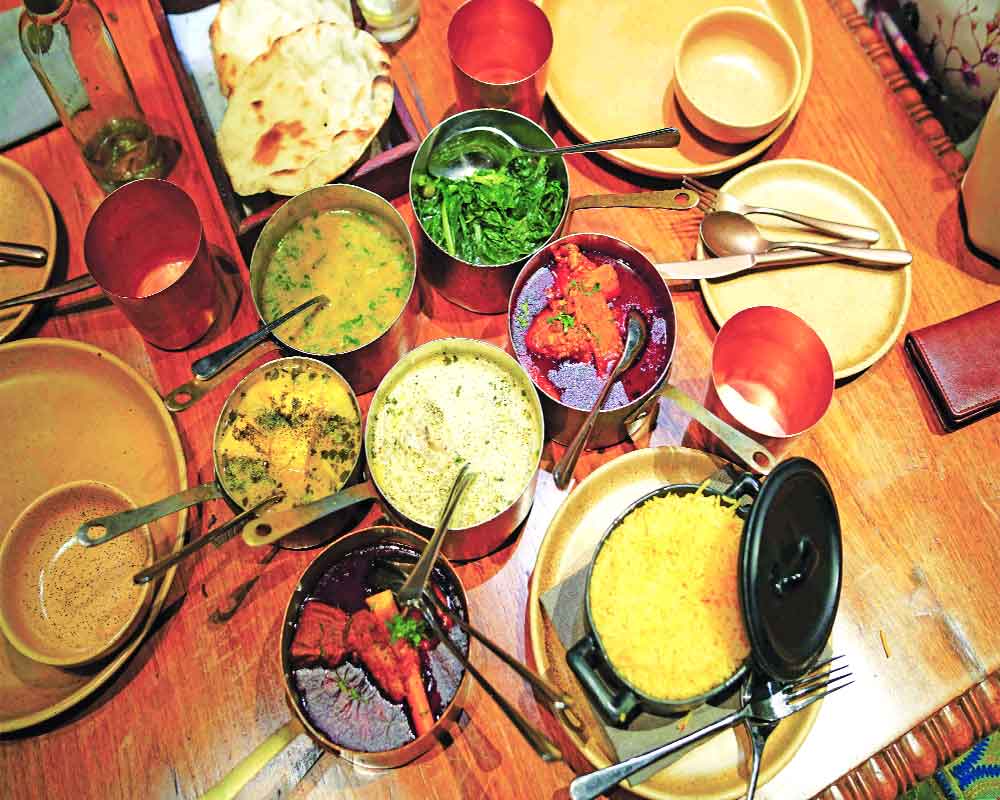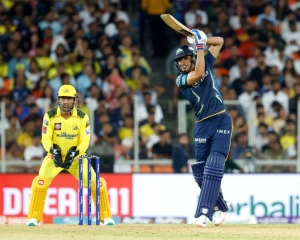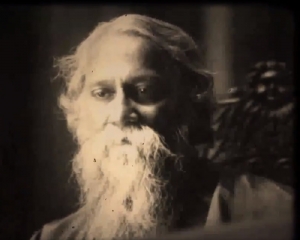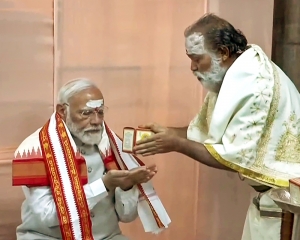Chef Rahul Wali, through his expertise and dedication brings forth a unique culinary experience that celebrates the distinct identity of Kashmiri Pandit cuisine. Divya Bhatia had the chance to taste his lip-smacking delicacies
Kashmir is known for its scenic beauty but what people often mis on a trip to Kashmir is it Kashmiri Pandit cuisine which is a rich in flavors, influenced by the cultural heritage and geographical diversity of the Kashmir Valley. Renowned for its exquisite blend of aromatic spices and traditional cooking techniques, Kashmiri Pandit cuisine is a true reflection of the region's history and culinary prowess. Staple ingredients such as rice, yogurt, and vegetables form the foundation of many dishes, which are often infused with an array of spices like fennel, cardamom, and saffron, lending a unique and complex flavor profile. Signature dishes such as Rogan Josh, Yakhni, and Dum Aloo are cherished for their rich textures and vibrant taste. Moreover, the cuisine also features a variety of delectable vegetarian options, including Nadru Yakhni (lotus stem in yogurt gravy) and Haaq Saag (collard greens cooked with spices). With its emphasis on fresh ingredients and intricate preparation methods, Kashmiri Pandit cuisine continues to captivate palates worldwide, showcasing the rich culinary heritage of the Kashmiri Pandit community.
Recently, I had the opportunity to indulge in Koshur Wuribal, a culinary extravaganza celebrating the exquisite flavors of Kashmiri Pandit cuisine, at The Roseate House. Often overshadowed by the renowned Wazwan, Kashmiri Pandit cuisine boasts a distinct identity, tracing its origins back to 326 BCE, long before the arrival of Wazwan in the 16th century. Contrary to common perception, Kashmiri Pandit cuisine stands apart with its unique flavors and traditions. There are very few chefs who understand traditional Kashmiri Pandit cooking, but Chef Rahul Wali stands as a beacon of tradition in this culinary landscape where authenticity is often diluted by modern interpretations. With a deep understanding of Kashmiri Pandit cuisine, Chef Rahul introduced us to age-old recipes and forgotten culinary practices, offering a rare opportunity to savor the true essence of Kashmiri Pandits' gastronomy. Chef Rahul Wali talked about his journey and passion. Excerpts:
Could you share your journey as a Chef?
I was born in Srinagar, Jammu & Kashmir, and spent my formative years in Mumbai and Pune. My culinary journey began after completing my Bachelor's in Hotel Management from Pune. I garnered extensive experience across various renowned brands in India and abroad, eventually pursuing an advanced Graduate Degree in Gastronomy from Le Cordon Bleu, Adelaide Australia. In recent years, I've been dedicated to reviving and promoting Kashmiri Pandit cuisine through pop-ups, festivals, and collaborations with hotels and restaurants.
What inspired you to focus on promoting Kashmiri Pandit cuisine?
The inspiration stems from a dual purpose - preserving our culinary heritage and introducing the richness of Kashmiri Pandit cuisine to a broader audience. This cuisine, dating back to centuries, holds a distinct place in culinary history, characterized by unique flavors and techniques. Unfortunately, it has remained relatively obscure compared to the more widely known Kashmiri cuisine. I aim to change that by bringing it to the forefront and showcasing its diversity and depth.
How would you differentiate Kashmiri Pandit cuisine from other regional cuisines?
Kashmiri Pandit cuisine is distinctive in several aspects. Firstly, it predates the more commonly known Kashmiri cuisine, tracing its roots back to ancient times. Secondly, unlike many other Indian cuisines, it refrains from using onion, garlic, or tomatoes in its preparation. The focus is on a handful of traditional spices, meticulously blended to create nuanced flavors. Additionally, the cooking method involves patience and slow cooking, preserving the authenticity of the dishes.
What challenges do you face in promoting Kashmiri Pandit cuisine outside its native region?
While the reception has been overwhelmingly positive, there are challenges, particularly in sourcing authentic ingredients. Additionally, there's a misconception that Kashmiri cuisine is solely suited for colder climates, which isn't entirely accurate. Educating people about the versatility and richness of our cuisine is an ongoing effort, requiring collaboration and support from various stakeholders.
How do you ensure an authentic culinary experience for guests during food festivals and pop-ups?
Authenticity is paramount, although it's essential to acknowledge that complete replication may not always be feasible, especially in diverse culinary landscapes. However, I strive to maintain the essence and integrity of Kashmiri Pandit cuisine while adapting to local ingredients and preferences. Each dish is crafted with care and respect for tradition, ensuring that guests experience the true flavors of Kashmir.


























